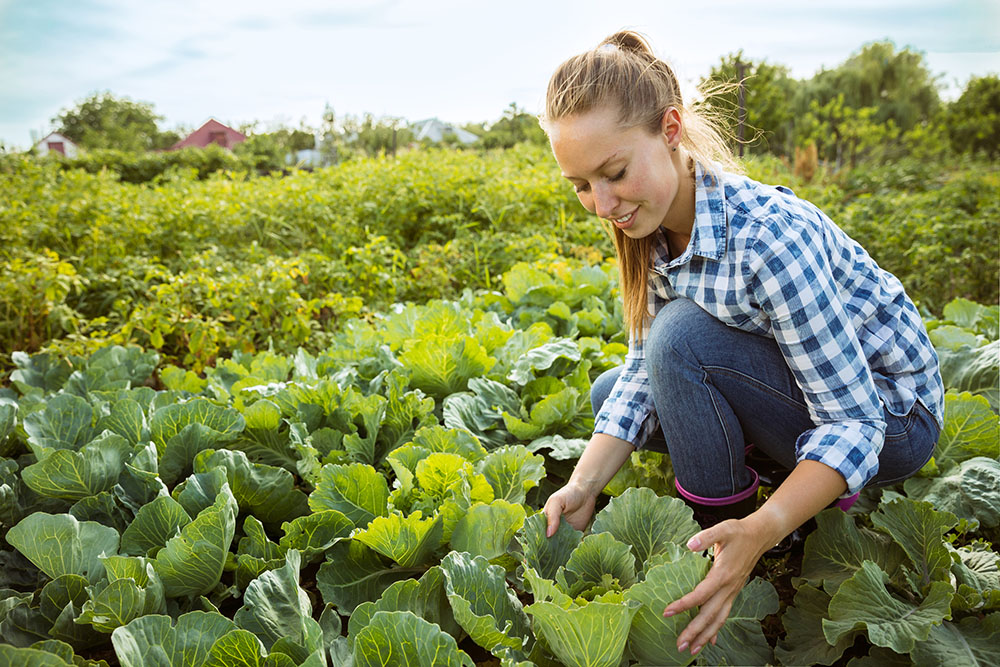Canada’s agricultural industry is a cornerstone of the nation’s economy, playing a vital role in both local and global food supply chains. As the demand for labor continues to grow, especially in rural and remote areas, the need for foreign workers in farming has become increasingly critical. Farming jobs offer not only an opportunity to work in one of the world’s most fertile lands but also a chance to experience the unique Canadian way of life. For many immigrants, these positions serve as a gateway to better living standards and potential pathways to permanent residency.
Canada’s vast and varied landscapes provide a rich environment for diverse agricultural activities, from dairy farming in the prairies to fruit picking in British Columbia. This sector’s reliance on temporary foreign workers underscores the importance of visa sponsorship programs, which help fill labor shortages during peak seasons. Whether you are looking to gain hands-on farming experience, explore rural communities, or seek long-term employment opportunities, Canada’s farming industry is a promising field for immigrants seeking new beginnings.
Entry-level Skills and Experience Required
Farming jobs in Canada are accessible to individuals with varying levels of experience, though certain skills can enhance your employability. Basic entry-level positions typically require:
- Physical Stamina and Strength: Ability to perform physically demanding tasks such as lifting, bending, and working long hours outdoors.
- Basic Agricultural Knowledge: Understanding of farming practices, such as planting, harvesting, and operating basic machinery, is beneficial but not always necessary.
- Willingness to Learn: A positive attitude and willingness to adapt to new tasks and environments are crucial.
- Teamwork Skills: Most farming jobs require working closely with other staff, so good communication and teamwork are essential.
While formal education in agriculture is not always required, having some background in related fields, such as horticulture or animal care, can be advantageous.
Visa Sponsorship Programs for Farm Workers
Canada offers several visa programs to facilitate the entry of foreign workers into the agricultural sector:
- Temporary Foreign Worker Program (TFWP): This program allows employers to hire foreign workers to fill temporary labor shortages. It requires employers to obtain a Labor Market Impact Assessment (LMIA) to prove that no Canadian worker is available for the job.
- Agri-Food Immigration Pilot: This pilot program targets experienced workers in the meat processing sector and aims to help them transition to permanent residency.
- Seasonal Agricultural Worker Program (SAWP): Specifically designed for workers from participating countries, this program allows them to work on Canadian farms for up to eight months per year.
- International Mobility Program (IMP): For employers who do not require an LMIA, this program allows for the hiring of foreign workers without the need for a labor market test.
These programs are designed to streamline the process for both employers and workers, making it easier to fill critical labor shortages in the agricultural sector.
Types of Farming Jobs Available to Foreign Workers
There is a wide range of farming jobs available to foreign workers in Canada. Some of the most common positions include:
- Farm Laborer: General tasks such as planting, harvesting, and packing produce.
- Equipment Operator: Operating and maintaining farm machinery and equipment.
- Dairy Farm Worker: Caretaking for dairy cows, milking, feeding, and maintaining farm hygiene.
- Greenhouse Worker: Planting, nurturing, and harvesting crops in controlled environments.
- Livestock Worker: Caring for animals, feeding, and managing livestock health and breeding.
Each role requires different skills and levels of experience, making it possible for workers with diverse backgrounds to find suitable positions.
Regions with the Highest Payment Structures
Here are the top five regions in Canada known for offering the highest payment structures for farming jobs:
- British Columbia
- Description: Known for its fruit orchards and greenhouse farming, wages here can be higher due to the cost of living.
- Average Wage: $15 – $20 per hour
- Ontario
- Description: A major producer of vegetables, dairy, and poultry, with higher wages in certain regions.
- Average Wage: $14 – $18 per hour
- Alberta
- Description: Famous for cattle ranching and wheat farming, Alberta offers competitive wages to attract workers.
- Average Wage: $16 – $22 per hour
- Quebec
- Description: Known for its maple syrup production and dairy farming, Quebec offers good pay in its agricultural sector.
- Average Wage: $13 – $17 per hour
- Manitoba
- Description: With vast prairies, Manitoba is ideal for grain and cattle farming, offering attractive wages.
- Average Wage: $14 – $19 per hour
Salary Expectations for Immigrants
The following table summarizes the salary expectations for different farming jobs across Canada:
| Region | Job Title | Average Salary (CAD/hour) |
|---|---|---|
| British Columbia | Farm Laborer | $15 – $20 |
| Ontario | Dairy Farm Worker | $14 – $18 |
| Alberta | Equipment Operator | $16 – $22 |
| Quebec | Greenhouse Worker | $13 – $17 |
| Manitoba | Livestock Worker | $14 – $19 |
In summary, wages can vary widely depending on the region, job type, and level of experience. British Columbia and Alberta typically offer the highest wages, making them attractive locations for job seekers in the farming sector.
Companies Hiring Farm Workers in Canada
Several companies and agricultural operations in Canada actively hire foreign workers. Here are some notable employers and their requirements:
- J.R. Simplot Company
- Requirements: Previous experience in agricultural work preferred. Valid passport and work permit.
- Westcoast Agricultural Ltd.
- Requirements: Willingness to work in remote areas. Strong physical stamina and teamwork skills.
- Maple Leaf Foods
- Requirements: Experience in meat processing is a plus. Must have a valid work visa.
- Okanagan Specialty Fruits
- Requirements: Experience in fruit farming and handling machinery. Willing to work long hours.
- Sifton Farms
- Requirements: Experience in dairy farming or livestock care. Basic English skills required.
These companies provide a range of opportunities and are known for supporting their foreign workforce with necessary documentation and accommodation.
Visa Types and Options for Farm Workers
Several visa types are available for farm workers in Canada:
- Temporary Foreign Worker Program (TFWP): For short-term employment, requiring an LMIA.
- Seasonal Agricultural Worker Program (SAWP): For workers from participating countries, valid for up to eight months.
- Agri-Food Immigration Pilot: For those with experience in the meat processing industry, offering a pathway to permanent residency.
- International Mobility Program (IMP): Allows for hiring without an LMIA, suitable for certain job categories.
Each visa type has specific requirements and benefits, tailored to different needs and durations of stay.
Where to Find Farm Job Opportunities
Finding a farm job in Canada can be straightforward with the right resources. Here are some useful places to start:
- Job Boards: Websites like Indeed, Workopolis, and Job Bank Canada.
- Recruitment Agencies: Agencies specializing in agricultural employment, such as AgCareers.com.
- Community Centers and Local Agricultural Associations: They often have job postings and networking opportunities.
- Social Media and Online Forums: Platforms like Facebook groups dedicated to farm work or immigration forums.
Utilizing these resources can help you connect with potential employers and find job openings that match your skills and preferences.
How to Apply for Farm Jobs as an Immigrant in Canada
Applying for farming jobs as an immigrant involves several key steps:
- Prepare Your Resume and Cover Letter: Tailor your documents to highlight relevant experience and skills. Ensure they are clear and professional.
- Research Employers: Use job boards, recruitment agencies, and local contacts to find potential employers. Reach out to them directly or apply through their websites.
- Gather Necessary Documents: This includes your passport, proof of qualifications, and any certifications related to farming. Make sure you have copies of your work permit and visa application documents.
- Submit Applications: Apply online or in-person, following the employer’s instructions carefully. Be prepared for interviews, which may be conducted via phone or video call.
- Seek Assistance if Needed: Consider seeking help from immigration consultants or settlement services to navigate the visa application process and understand your rights and benefits as a worker in Canada.
With careful preparation and the right resources, you can secure a rewarding farming job in Canada and embark on a new chapter in your life.



I am interested and ready to work as a farm worker. Thank you
I am interested to work as a farmer
Thank you
Interested to work as a farm worker ,thanks
Yes I am interested to come work as a farm work.
Am interested to work as a farmer
I will be happy to work on my farm
Thank you for the opportunity and I hope that I can get the job.
looking forward to be recruited
Am ready to work as a farm worker
Thank you so much this opportunity ..
Please am ready to work with your company as a farm worker
I am eager to secure a farm job in Australia because I am passionate about agriculture and eager to gain hands-on experience in a unique and challenging environment. I am drawn to Australia’s world-class farming industry and reputation for innovative agricultural practices. This opportunity will allow me to develop my skills in crop management, livestock handling, and farm maintenance, while also immersing myself in Australian culture and contributing to the country’s food security. Additionally, I am excited about the prospect of working outdoors, being part of a close-knit rural community, and enjoying the beautiful Australian landscape. Ultimately, this experience will enhance my career prospects, broaden my perspectives, and create lifelong memories.”
I will like to work in this field and I believe it will enable me to explore my love in provision to humanity which has been my long time dream.